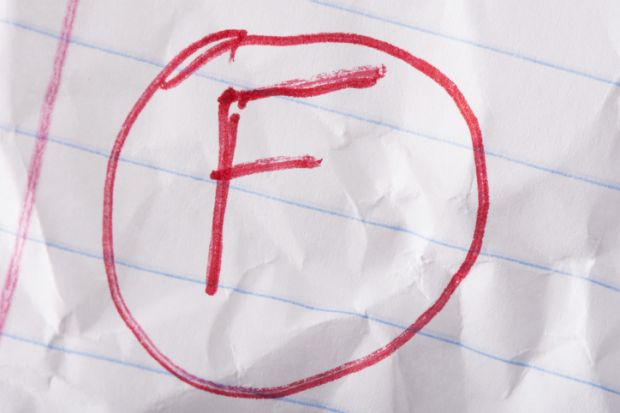Canberra’s plan to deny government benefits to failing students is regulatory overreach that will particularly disadvantage education minister Dan Tehan’s constituents in the bush, Australian university groups say.
The government blindsided the sector with a plan to rule students ineligible for teaching grants or loans if they failed to successfully complete half of their subjects. The proposal was among a raft of surprise inclusions in draft legislation underpinning Mr Tehan’s overhaul of undergraduate fees and subsidies.
Mr Tehan said the measure would protect students from pointlessly incurring large tuition fee debts. “Research has shown that nearly 6 per cent of university students fail every subject in their first year,” he told the ABC.
“Universities and students [must] understand that they need to work together to make sure that the student is suitable for the course they’re undertaking.”
But critics said universities already monitor their students’ progress, and regional students – many of whom are the first in their families to attend university, and can struggle in the unfamiliar environment – are most at risk from the new rule.
The Regional Universities Network questioned why the government had taken “so prescriptive” an approach. “While the objective of the proposed measure is reasonable, we would not support reducing the autonomy of universities to determine their own student progression requirements,” said chair Helen Bartlett.
Other groups have raised similar objections in submissions on the draft legislation. The Innovative Research Universities (IRU) said Mr Tehan had produced a “heavy handed” solution to unsubstantiated problems.
It said the legislation included 18 new measures to stop universities from adopting “negative marketing behaviours” or signing up non-genuine students – activities that had flourished temporarily in vocational training funding schemes before the government tightened the rules.
Most of these measures are “not necessary for universities”, the IRU submission says. “This is a major extension of regulation over universities, with a limited evidence base for the need.”
It says the accountability section of the Higher Education Support Act has more than doubled in size since the act’s introduction in 2003. The new measures would make it longer still – “contrary to the government’s commitment to reduce red tape”.
Australian National University policy expert Andrew Norton said most universities already intervened when students failed more than half their subjects. The government’s measures would limit the grounds under which students could plead special circumstances – particularly if those circumstances had emerged before the “census date” when students became liable for fees.
“A university’s judgement on the student’s specific circumstances is likely to be fairer than an inflexible bureaucratic rule,” Professor Norton blogged. “The current situation…is preferable to the government’s proposal.”
The IRU also wants the draft legislation to include tighter rules around the “maximum base grant amount” set by the education minister, to ensure that overall funding for each university’s courses cannot decline from one year to the next.
The submission also calls for a change to “grandfathering” rules covering some arts, humanities, business and law courses. While fees for such subjects will rise under Mr Tehan’s proposals, students starting their courses before 2021 will continue paying the current amounts.
The government originally indicated that this safeguard would apply even if students subsequently changed their courses, but the legislation does not allow for that – a situation the IRU wants reversed.
Register to continue
Why register?
- Registration is free and only takes a moment
- Once registered, you can read 3 articles a month
- Sign up for our newsletter
Subscribe
Or subscribe for unlimited access to:
- Unlimited access to news, views, insights & reviews
- Digital editions
- Digital access to THE’s university and college rankings analysis
Already registered or a current subscriber?








